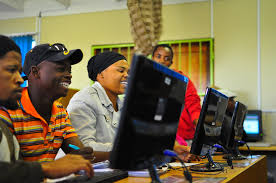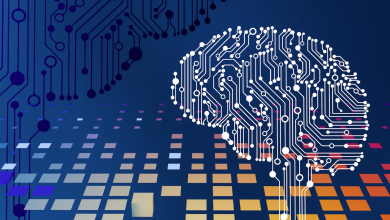
Artificial intelligence (AI) is often described as the defining technology of our age: an engine of productivity that will shape the future of industries, economies, and societies. Yet as the United States, China, and Europe pour billions into AI research, infrastructure, and applications, Africa risks being left on the sidelines of this race.
The continent is not lacking in talent or ambition. Africa’s universities and innovation hubs are producing world-class engineers, data scientists, and entrepreneurs.
Many of our most pressing challenges, such as boosting national food security, expanding access to healthcare, and driving up financial inclusion, are problems AI could help solve in powerful ways. Entrepreneurs are acutely aware of this. According to SAP Research, there are already around 2,500 AI-focused companies on the continent working on these such issues.
Indeed, partly because of its ability to add real value to fundamental issues, the World Economic Forum (WEF) predicts that AI and emerging technologies will contribute $1.5 trillion to Africa’s GDP by 2030.
But the foundations for building and scaling AI systems remain painfully out of reach for most African innovators. Without urgent intervention, Africa could become a passive consumer of AI technologies designed elsewhere and therefore by nature not optimally designed for the unique conditions experienced on the continent.
The Barriers Holding Africa Back
At the heart of the challenge is infrastructure. Training a large language model in Nigeria, Kenya, or Ghana today requires renting graphics processing units (GPUs) from providers overseas. The costs are astronomical by local standards, and many African countries lack the basic infrastructure, such as reliable energy supplies, that these technologies demand.
Put simply, the continent does not yet have the affordable, scalable compute infrastructure that makes cutting-edge AI experimentation feasible.
Data is another barrier. Responsible AI requires vast, high-quality datasets, governed by frameworks that protect consumers’ privacy and security. African governments are rightly keen to ensure their citizens’ data remains within their national borders so they can oversee its use effectively.
Yet storing sensitive health, financial, or educational data locally is prohibitively expensive for many African institutions. As a result, researchers often rely on foreign cloud providers – something that in turn raises controversial questions about data sovereignty.
Finally, there is the challenge of technical support. Africa has talent in abundance – digital skills are to be expected on a continent with an average age of 19 – but many of our brightest AI minds are forced to leave in search of environments where they can practice at scale. This creates a cycle of brain drain that weakens local ecosystems and deepens dependency on imported expertise.
These structural gaps mean that even as AI becomes increasingly embedded in everyday life, shaping tools such as search engines, banking apps, and agricultural systems, Africa risks having limited influence on how the technology is trained, deployed, and governed.
Why Dependency Is Dangerous
If Africa remains primarily a consumer of foreign-built AI systems, the consequences will be profound. First, we risk embedding cultural and linguistic blind spots into technologies that increasingly mediate our access to information and services.
An AI tool trained primarily on Western datasets may misinterpret African languages, contexts, or social norms: with real consequences for decision-making in AI tools related to critical sectors such as healthcare, justice, or education.
Second, dependency undermines economic opportunity. The AI industry will generate trillions of dollars in value globally, but if African firms are locked out of production and limited to consumption, we forfeit a major engine of future growth.
Instead of exporting AI talent and importing AI products, Africa should be building its own value chains that allow our innovators to capture a fair share of this economic transformation.
Finally, sovereignty matters. As AI becomes intertwined with national security, governance, and critical infrastructure, over-reliance on foreign systems creates vulnerabilities. Africa must have the capacity to shape, govern, and secure the AI systems that will underpin its societies in the decades ahead.
Signs of Progress
Despite these barriers, promising initiatives are beginning to emerge. Across the continent, universities and research centres are investing in AI labs, while governments are drafting AI strategies to balance innovation with regulation.
While venture capital funding has dipped since its 2021 peak, increasing numbers of well-funded startups are leveraging AI in agriculture, logistics, and health – often with remarkable creativity.
This progress is being recognised by the very biggest industry players. Sam Altman, CEO of OpenAI, says that “Africa is going to be the fastest growing and most important market over the next coming decades for many companies.” But how do we ensure this progress and potential translates into tangible results for the continent’s emerging AI ecosystem?
Charting a Path Forward
For Africa to secure a meaningful place in the global AI economy, three priorities stand out.
First, we must invest in local compute infrastructure, whether through regional data centres, GPU hubs, or innovative financing models that make compute more accessible. Without affordable compute, entrepreneurs cannot innovate, and Africa’s AI industry cannot scale.
Second, we must develop compliant, cost-effective data frameworks that allow sensitive information to be stored and used locally. This requires collaboration between governments, regulators, and industry, but it is essential to ensure both sovereignty and trust.
Third, we must create environments that keep talent at home. This means building ecosystems and communities where African engineers and entrepreneurs can test, build, and scale AI applications without leaving the continent.
Africa’s contribution to the AI race will not look identical to that of the US, China, or Europe. Nor should it. Our strength lies in applying AI to contexts where the impact is immediate and transformative – from optimising crop yields in smallholder farms to extending healthcare access in underserved communities.
But to move from consumer to contributor, we must confront the structural barriers that limit participation.
The AI race is not only about speed; it is about inclusion. If Africa is left behind, the world loses out on the perspectives, datasets, and innovations that our continent uniquely offers.
The challenge before us is to ensure that the next wave of technological transformation is not something done to Africa, but something built with Africa, by Africans, for the world.




